On the occasion of the annual International Day of Women and Girls in Science, 11th February, leading female scientists, physicists and engineers from the EIROforum Organisations share their experiences and inspire the next generations.
Scroll the profile gallery for their responses to the following questions:
- How old were you when you decided to be a (STEM Professional)
- What was your first scientific discovery?
- Who inspired you to pursue a career in science / STEM?
- What single advice would you give a 14-year old girl who is considering studying science / STEM
- Why is gender diversity important in science / STEM?
“Science is for everyone.” – Eaazhisai Kandiah, Scientist (ESRF)
Heli Greus
Engineer (ESA)
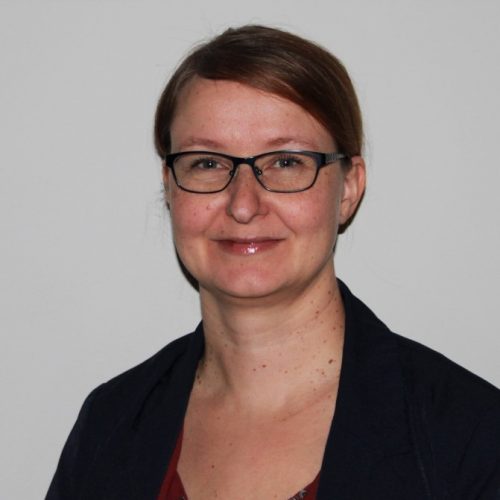
How old were you when you decided to be an engineer?
It took me a long time to decide what I would like to be. I was always interested in mathematics, physics and chemistry, but it was not until it was time to decide where to do my BSc that I discovered that space systems engineering was my thing. The formulas leaned at school were applied in a way that we could calculate satellite orbits, we learnt about reliability of a system and the harsh space environment.
What was your first “scientific” discovery?
My first ‘scientific’ discovery was in a winter. I was around 5 years old, playing outside with my sister. The outside temperature was around -10°c, and I decided to lick the frost out of a metal bar of the snow shovel. My tongue stick to the cold metal bar and my sister went to get our mom to help me. She came with warm water bottle and pored the warm water to the metal bar and I was released.
“You do not have to have the maximum grade in STEM subjects in school. If you do not make mistakes, you do not learn from them.”
Who inspired you to pursue a career in science / STEM?
My parents and the early mindset of tasks. There was no separation of tasks at home as female/male tasks. There were only tasks that needed to be done. In the summer, somebody had to cut the grass, in the winter my sister and I were helping to clear the snow. My dad taught me how to change a tyre in a car in case I was driving alone and had flat tyre. The early mindset that I can do/learn any things when I put my head into it was the inspiration, I just needed to find my thing that I was keen to learn.
What single advice would you give a 14-year-old girl who is considering studying science / STEM?
You do not have to have the maximum grade in STEM subjects in school since if you do not make mistakes, you do not learn from them. Your background or where you live does not matter. What matters is the passion to discover new things. Look at me, I was a little girl coming from Northern Finland from a village of 15 000 people and now I’m working in the European Space Agency and encouraging women and girls to pursue STEM subjects.
Why is gender diversity important in science / STEM?
Diversity leads to better science. Gender diversity allows broader viewpoint and new questions to be discussed within the research team.
Kate Isaak
Scientist (ESA)
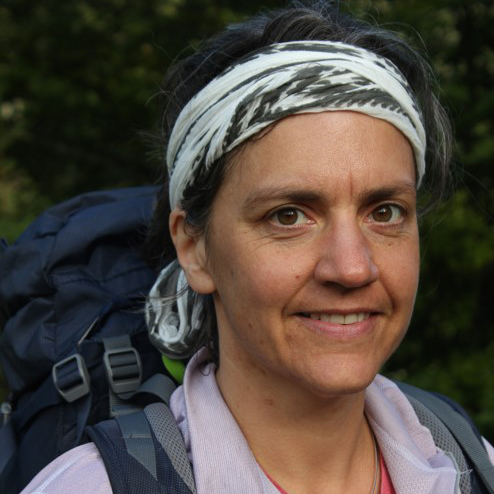
How old were you when you decided to be a scientist?
Ever since I can remember I wanted to know why things are the way they are in the natural world – “why” things worked, rather than how. It was always very clear to me that I would try to follow a career in which I could work on finding some of the answers, which meant going into science. What was more tricky was deciding which branch of science to pursue. I went to University to study Natural Sciences which gave me the option to continue studying physics, chemistry and biology, and it was wasn’t until I was twenty and starting my final year of my degree that I focussed on physics. I work in astrophysics and space science, and more precisely on exoplanets – in this field I get to combine physics with chemistry, engineering and even some biology, so, in some senses, I still haven’t really decided 🙂
“The Sun burns more than just skin – it is scary what one can do with a magnifying glass!”
What was your first “scientific” discovery?
That the Sun burns more than just skin – it is scary what one can do with a magnifying glass!
Who inspired you to pursue a career in science / STEM?
My parents were both scientists, so I grew up with science all around me – they showed me by example that science was very special, providing logical explanations for day-to-day experiences; at the same time, they showed me that science was not special – after all, if they could be scientists, why couldn’t I ! I was also very fortunate in having inspirational physics and chemistry teachers, both at my high school in Birmingham and at university.
What single advice would you give a 14-year-old girl who is considering studying science / STEM?
Take yourself seriously, stand up for what you believe in and don’t be afraid to speak up.
Why is gender diversity important in science / STEM?
The scientific and technical questions that we want to answer often appear simple, but can be very complex. Coming at such a problem from different viewpoints and angles is crucial, as different perspectives can trigger responses and lines of inquiry, which might otherwise not have been considered. Gender diversity can be a very important source of different viewpoints and experiences.
Evanthia Hatziminaoglou
Scientist (ESO)
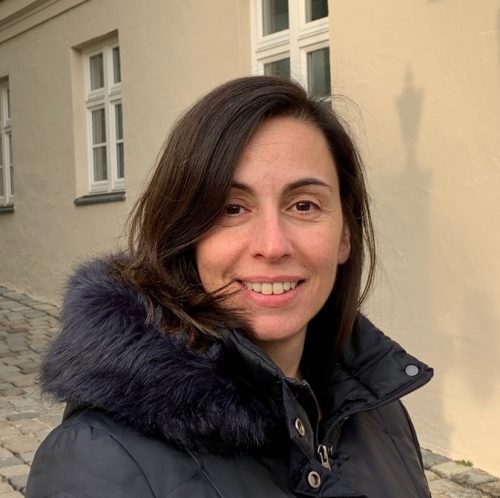
How old were you when you decided to be a scientist?
I was six when I decided I wanted to be an astronomer. At the time, I wasn’t sure of what that meant exactly but I knew this was the only way I could get to meet the little green men and perhaps get to know how many stars there were in the sky.
What was your first “scientific” discovery?
It wasn’t really a discovery, it was more of an experiment. One day I filled a bowl with water, added some flour (not entirely sure why) and tried to keep the balcony door shut for a few days, expecting the water to evaporate, a cloud to form and rain to fall in my room. The outcome was a smelly room and the certainty, in my six-year-old mind, that there was something wrong with physics, given that the experiment was set up and carried out to perfection!
“Never did my parents try to discourage me even if they knew this probably meant their only child would move (far) away from them one day.”
Who inspired you to pursue a career in science / STEM?
My parents, both of them researchers in a more down-to-earth subject (agricultural engineering). Their lab has been my second home ever since I can remember: given the very limited child care options at the time this is where I spent most of my afternoons and a good part of the long summer holidays. From a very young age I was helping them with their experiments, with the organisation of workshops and I also accompanied them on several occasions to conferences and work visits. They have been supportive of my decision all along. Never did they say what I was after was difficult or far-fetched (this was Greece in the 80s when I became serious about it), never did they try to discourage me even if they knew this probably meant their only child would move (far) away from them one day.
What single advice would you give a 14-year-old girl who is considering studying science / STEM?
Nothing is worth changing who you are.
Why is gender diversity important in science / STEM?
Diversity is the one quality that ensures a functioning and sustainable ecosystem. This by itself should be enough to stress the importance of gender and any other form of diversity in any environment. In science/STEM there is an additional factor that makes gender (but also cultural, ethnic, age etc) diversity even more important and this is the power of the contribution of the individual to the collective knowledge. Gender diversity expands the pool of skills, the viewpoints and the ways science is pursued, and makes the work place a more fun place to be.
Patricia Guajardo
Engineer (ESO, Chile)
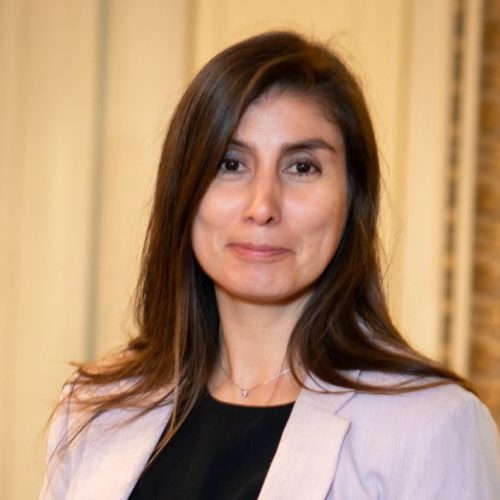
How old were you when you decided to be an engineer?
When I was 18 years old, once I finished High School, I took the University Selection Test in Chile and with the results and scores I got I realized that the Engineering area was a good idea to follow, so I decided to study Electronic Engineering.
What was your first “scientific” discovery?
Together with my brother we played between our rooms with the communication through the “telephone of glasses”. We used to speak very late until our mother caught us. My first job was in the telecommunication area.
“In the Science world there are extraordinary men and women.”
Who inspired you to pursue a career in science / STEM?
In secondary school I had a very good teacher of mathematics, he explained very well the subject and I still remember that he introduced us to part of the University topics which I found very interesting.
What single advice would you give a 14-year-old girl who is considering studying science / STEM?
That she should explore several areas like software in computer games, choose robotic in school as a hobby. Also that she dares to disarm and arm things and if possible attends science fairs.
Why is gender diversity important in science / STEM?
In the Science world there are extraordinary men and women, it is wonderful to work in a complementary way, the future is following this turn, to build a better world.
Sibylle Günter
Physicist (EUROfusion)
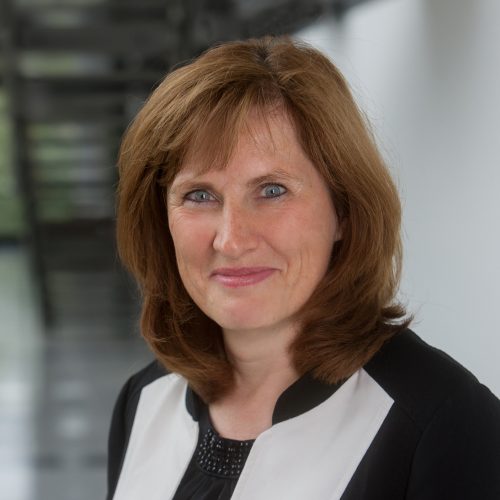
How old were you when you decided to be a physicist?
When I was a kid, I wanted to become a doctor. As a teenager, I thought about mathematics and chemistry, but, at 18 I finally decided on physics.
What was your first “scientific” discovery?
Well, I “discovered” the Leidenfrost effect* on our oven. I played with many water drops, and my mother was very happy that I did not try it with my own hands.
* The Leidenfrost effect is a phenomenon in which a liquid, in near contact with a mass significantly hotter than the liquid’s boiling point, produces an insulating vapor layer keeping that liquid from boiling rapidly.
“I am convinced that mixed teams are much better than uniform teams of one gender.”
Who inspired you to pursue a career in science / STEM?
Well, I liked all STEM subjects more than all the other subjects we had at school. There was no particular person.
What single advice would you give a 14-year-old girl who is considering studying science / STEM?
Go for it, no matter what the other girls or boys think about it. It is very exciting and can be great fun.
Why is gender diversity important in science / STEM?
I am convinced that mixed teams are much better than uniform teams of one gender. And my personal experience as a university professor is that the young female students who do study physics are really dedicated and perform very well. Maybe, because the girls who study physics did not end up in physics by accident. I think we do need role models to attract interested young women.
Eva Belonohy
Physicist (EUROfusion)
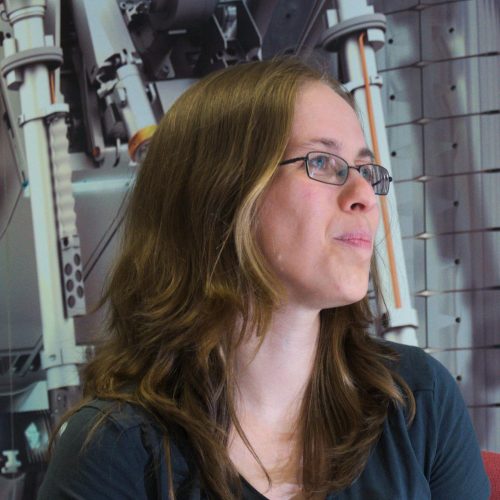
How old were you when you decided to be a physicist?
I decided very late to become a physicist, almost at the point of submission of my university application at the age of 17. My parents always wanted me to be a lawyer or an economist. These fields did not feel right for me; however, I did not dare to think about becoming a scientist. I also went to a music-oriented primary and secondary school for 12 years with only basic physics classes and very limited experimentation opportunity. I was however always a very curious person and wanted to understand everything in the universe. I found physics to be the best to achieve that. So, in the end, I took the courage and chose to apply to become a physicist.
What was your first “scientific” discovery?
I was around 8-years old when in the afterschool club I built a house out of paper and created some pets out of a fluffy material that wiggled due to electrostatic forces. I was praised and taken to the teacher’s lounge to demonstrate my newfound discovery.
“Diversity in gender, upbringing, culture, exposure to various experiences is important to provide fresh ideas and different approaches to the field.”
Who inspired you to pursue a career in science / STEM?
My mother worked at the medical university where I met some brilliant female research professors. I was around 14-years old, when strong female characters with science background were also introduced in sci-fi series that inspired me to think more about scientific research as a profession.
What single advice would you give a 14-year-old girl who is considering studying science / STEM?
Be curious and observant; and look into some great science channels on youtube and science courses available on online platforms such as edx.org from excellent universities for free.
Why is gender diversity important in science / STEM?
Diversity in gender, upbringing, culture, exposure to various experiences is important to provide fresh ideas and different approaches to the field. This relies on fair treatment of everyone, so opportunities are won based on effort and talent.
Edith Heard
Scientist (Director-General, EMBL)
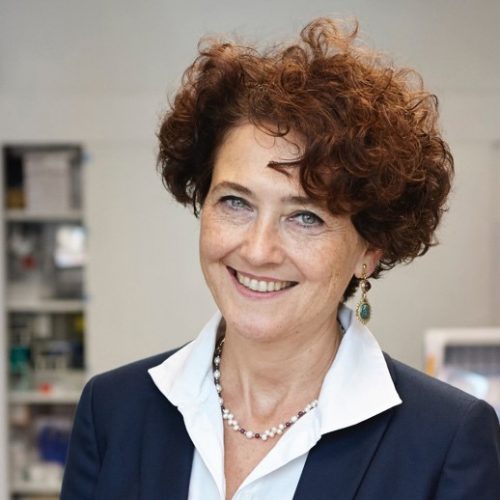
How old were you when you decided to be an astronomer?
I decided to be an astronomer when I was 17. Then I changed my mind to become a biologist at the age of 21, when I realised biology was more accessible experimentally, and relevant to life – and that looking down at our very own planet Earth could be even more fascinating than looking up at the stars!
What was your first “scientific” discovery?
That females are much more complex than males, due to the dynamic inactivation and reactivation of one of their two X chromosomes.
“Girls who are curious, who enjoy trying to understand how things work and the thrill of discovery should follow their interest!”
Who inspired you to pursue a career in science / STEM?
Several rather eccentric geneticists at Cambridge University.
What single advice would you give a 14-year-old girl who is considering studying science / STEM?
A 14-year-old should not think twice about becoming a scientist! The world needs more science. Girls who are curious, who enjoy trying to understand how things work and the thrill of discovery should follow their interest!
Why is gender diversity important in science / STEM?
Gender diversity is important in all areas of life! There is absolutely no reason why anyone should not follow a scientific career path, regardless of gender or race.
Pippa Wells
Particle Physicist (CERN)
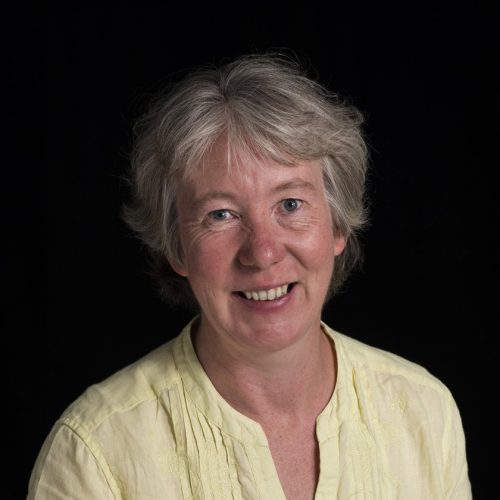
How old were you when you decided to be a physicist?
I specialised in science subjects in high school and I was around 19years old, second year of University, when I knew I wanted to be a physicist.
What was your first “scientific” discovery?
In primary school, we did a science experiment using coils of wire and batteries to make an electromagnet. I “predicted” that sending the current through the coil in the opposite direction would swap the North and South poles. By now I have been at CERN for more than 30 years, working with some of the largest and strongest electromagnets in the world.
“Every one – of any gender – has the right to enjoy and study science. Diverse teams bring different points of view and are the most effective.”
Who inspired you to pursue a career in science / STEM?
Carl Sagan. He gave the Royal Institution Christmas lectures in 1977 on the topic of the Solar System. I was always fascinated by the connection between the very small (particles) and the very large (the Cosmos).
What single advice would you give a 14-year girl who is considering studying science / STEM?
Understanding STEM subjects underpins multiple aspects of human society. It is vital that we have well informed scientists to meet the challenges ahead.
Why is gender diversity important in science / STEM?
Every one – of any gender – has the right to enjoy and study science. Diverse teams bring different points of view and are the most effective.
Maite Barroso Lopez
Engineer (CERN)
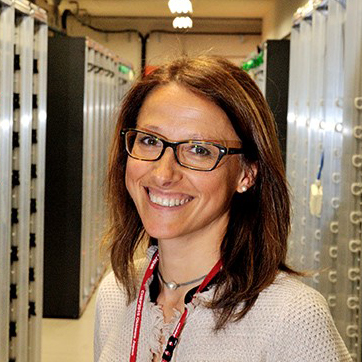
How old were you when you decided to be an engineer?
I was around 17 when I decided I wanted to become an engineer. I was thinking about studying physics but soon noticed that I got a lot of satisfaction from practical things, from applying my work to the real world.
What was your first “scientific” discovery?
Well, it is something very simple, I remember building a string telephone at school! I built so many afterwards at home, I was really impressed by the simplicity of the building blocks and the amazing results of the traveling sound waves. My first job was in telephony by the way.
“Go for it: this is a marvellous and very rewarding career path, it allows you to keep learning during your whole working life and keeps feeding your curiosity.”
Who inspired you to pursue a career in science / STEM?
In my college studies, I had a physics teacher, Isabel, who was extremely passionate and enthusiastic about sciences. She valued our curiosity and she is the one who ignited that spark for research and innovation. She gave me a window to the unlimited possibilities of discoveries that science offers.
What single advice would you give a 14-year-old girl who is considering studying science / STEM?
Go for it: this is a marvellous and very rewarding career path, it allows you to keep learning during your whole working life and keeps feeding your curiosity.
Why is gender diversity important in science / STEM?
Diversity is highly beneficial in all domains and science/STEM make no exception. More specifically, STEM fields rely on teamwork and the more diverse the perspectives of the team members are, the more successful the teamwork is.
Michela La Bella
PhD Student (ESRF)
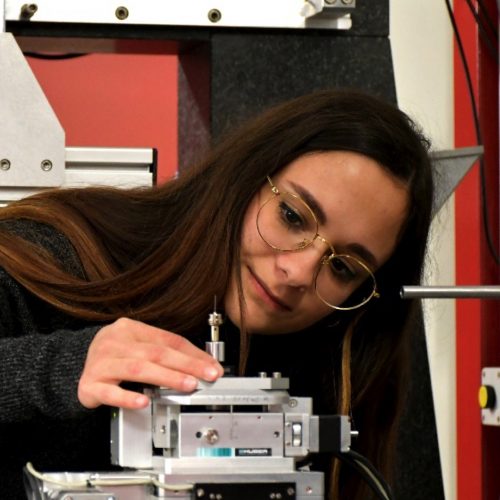
How old were you when you decided to be an engineer?
I have always found the way by which everything around us can be explained by science fascinating, but it was only when I grew up and developed a more critical thinking, around the last year in secondary school, that I decided to study science, and in particular geology.
What was your first “scientific” discovery?
I have just started my PhD project so I guess I do not have many outstanding discoveries to mention… But a few days ago I just learned how not to melt the filter that I am using to select some crystals that I am studying, which is a first step but essential before I can actually achieve a real discovery!
“The best way to inspire people to study science, and especially young students, is to make them feel your passion for it.”
Who inspired you to pursue a career in science / STEM?
Most of the scientists I met during my education inspired me, but the professors that taught me at university were those that inspired me the most. I think that the best way to inspire people to study science, and especially young students, is to make them feel your passion for it.
What single advice would you give a 14-year-old girl who is considering studying science / STEM?
I would say to never be put off by the obstacles that inevitably she will find and to always believe in herself. Passion, constancy and dedication are necessary and the only way to achieve great results.
Why is gender diversity important in science / STEM?
What matters in science are ideas and minds. We have to accept that gender diversity has been, and to an extent, continues to be, an issue. Whether you are a woman or a man, what matters is the research that you are doing and how it contributes to progress.
Eaazhisai Kandiah
Scientist (ESRF)
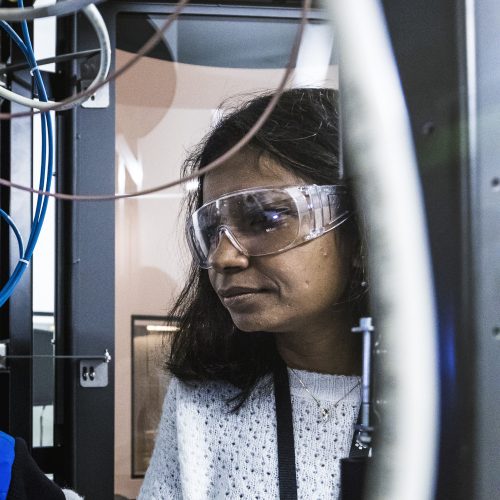
How old were you when you decided to be an engineer?
When I was in high school. My late physics teacher seeded the passion for physics in me.
What was your first “scientific” discovery?
During my degree, I developed a special interest in crystallography and so pursued a doctorate in Macromolecular Crystallography. I didn’t make a huge discovery, but I got a bit of an “Eureka” moment when I solved my first crystal structure of a potential drug target protein of the malarial parasite.
Who inspired you to pursue a career in science / STEM?
Many people that were part of my life in my young age. Starting with my parents (family), who helped me to believe that I can do science; then all my friends, who encouraged me to pursue a career in science; the professors, who, by sharing their knowledge and enthusiasm, showed me how to thrive in science.
“Science is for everyone.”
What single advice would you give a 14-year-old girl who is considering studying science / STEM?
Passion in any field is like a seed. You need to nurture it if you want the fruits and it may not be easy at times. However, it is 100% worth it.
Why is gender diversity important in science / STEM?
Science is for everyone. Obviously, there is no difference in the quantity/quality of ‘passion’ for it between women and men. In science, you only obtain good results when you solve a problem using different approaches. Therefore, it is only wise to make the most of the problem-solving skills of both men and women to answer a scientific question.
Janni Eidam
Vacuum Engineer (European XFEL)
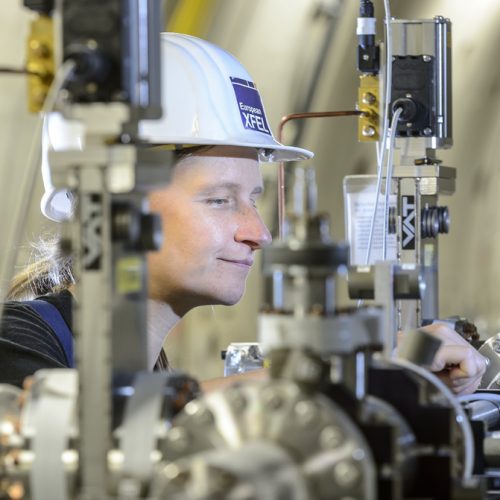
How old were you when you decided to be a (physicist / astronomer / engineer / IT specialist)?
I was already 26 years old when I started to study engineering. Before that I worked as a mechanic.
What was your first “scientific” discovery?
When I was little I discovered and was fascinated by the functional interaction of electricity, the electrical outlet and fuses. “As you can imagine my parents weren’t quite so enthusiastic as I was!”
“If you are interested in science, just go your own way!”
Who inspired you to pursue a career in science / STEM?
At the time I decided to start studying, I was working at DESY. This scientific environment really inspired me to think about starting my studies.
What single advice would you give a 14 year girl who is considering studying science / STEM?
If you are interested in science, just go your own way! Although I studied late, I was already interested in technics and science at young age and I never regretted that I took this path.
Why is gender diversity important in science / STEM?
I think it is important because science offers a wide range of variety jobs and roles, and different genders complement each other through different approaches to problems.
Zuzana Konopkova
Scientist (European XFEL)
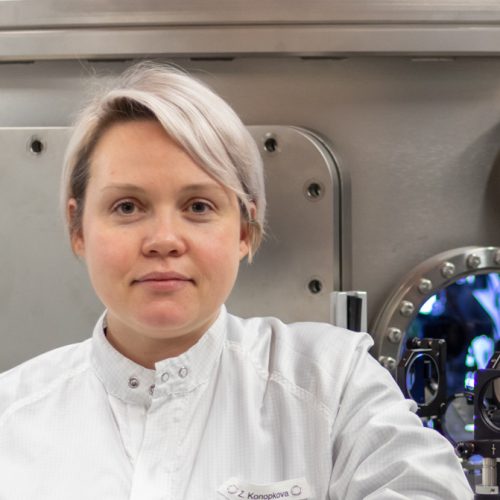
How old were you when you decided to be a (physicist / astronomer / engineer / IT specialist)?
I was about 15-16 years old when I realized that I wanted to do something physics/science related. At 18 I enrolled in Faculty of Math, Physics and Informatics, where Physics and later Geophysics was my major.
What was your first “scientific” discovery?
That a potato is a giant battery that can power a small LED clock!
“Like in many other fields, a good balance between males and females leads to a healthy professional environment.”
Who inspired you to pursue a career in science / STEM?
It was definitely some of my high school teachers and later university professors, those who had a talent to explain complicated physics and math in a clear and logical way to make it understandable and interesting to follow. They took time and effort and went beyond the textbooks. I think it is very important to have excellent and motivated teachers.
What single advice would you give a 14 year girl who is considering studying science / STEM?
Follow your instincts, if you like science and can spend hours reading about it and like solving challenges then there are no cons of getting involved in STEM.
Why is gender diversity important in science / STEM?
Like in many other fields, a good balance between males and females leads to a healthy professional environment. In science, it enhances creativity because females and males have sometimes different approaches to solve problems. Science / STEM worldwide still lacks a good balance which is why it is important to encourage young females to pursue a scientific career.
